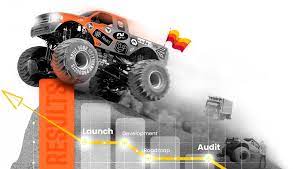A-team Global
1. Predictive Maintenance: By leveraging IoT data analytics and machine learning algorithms, companies can move from reactive to predictive maintenance strategies. Instead of waiting for equipment to fail, predictive maintenance allows operators to anticipate issues before they occur, minimizing downtime and optimizing maintenance schedules.
2. Autonomous Operations: IoT-enabled autonomous systems are revolutionizing oil and gas operations by reducing the need for human intervention in routine tasks. From unmanned drilling rigs to self-driving vehicles for pipeline inspection, autonomous technologies are improving operational efficiency and safety while reducing costs.
3. Digital Twins: Digital twin technology, which creates virtual replicas of physical assets, is gaining traction in the oil and gas industry. By integrating IoT data with advanced modeling and simulation techniques, companies can create digital twins of oil fields, refineries, and pipelines, enabling them to optimize performance, simulate scenarios, and improve decision-making.
4. Blockchain Integration: Blockchain technology is increasingly being integrated with IoT systems to enhance transparency, security, and efficiency in supply chain management and asset tracking. By leveraging blockchain’s immutable ledger capabilities, companies can ensure the integrity and traceability of data throughout the oil and gas value chain, from production to distribution.
5. Sustainability and Environmental Monitoring: iot in oil and gas industry are also playing a crucial role in advancing sustainability initiatives and environmental monitoring in the oil and gas industry. By monitoring emissions, water usage, and waste management in real-time, companies can reduce their environmental footprint and comply with regulatory requirements while enhancing their social license to operate.

